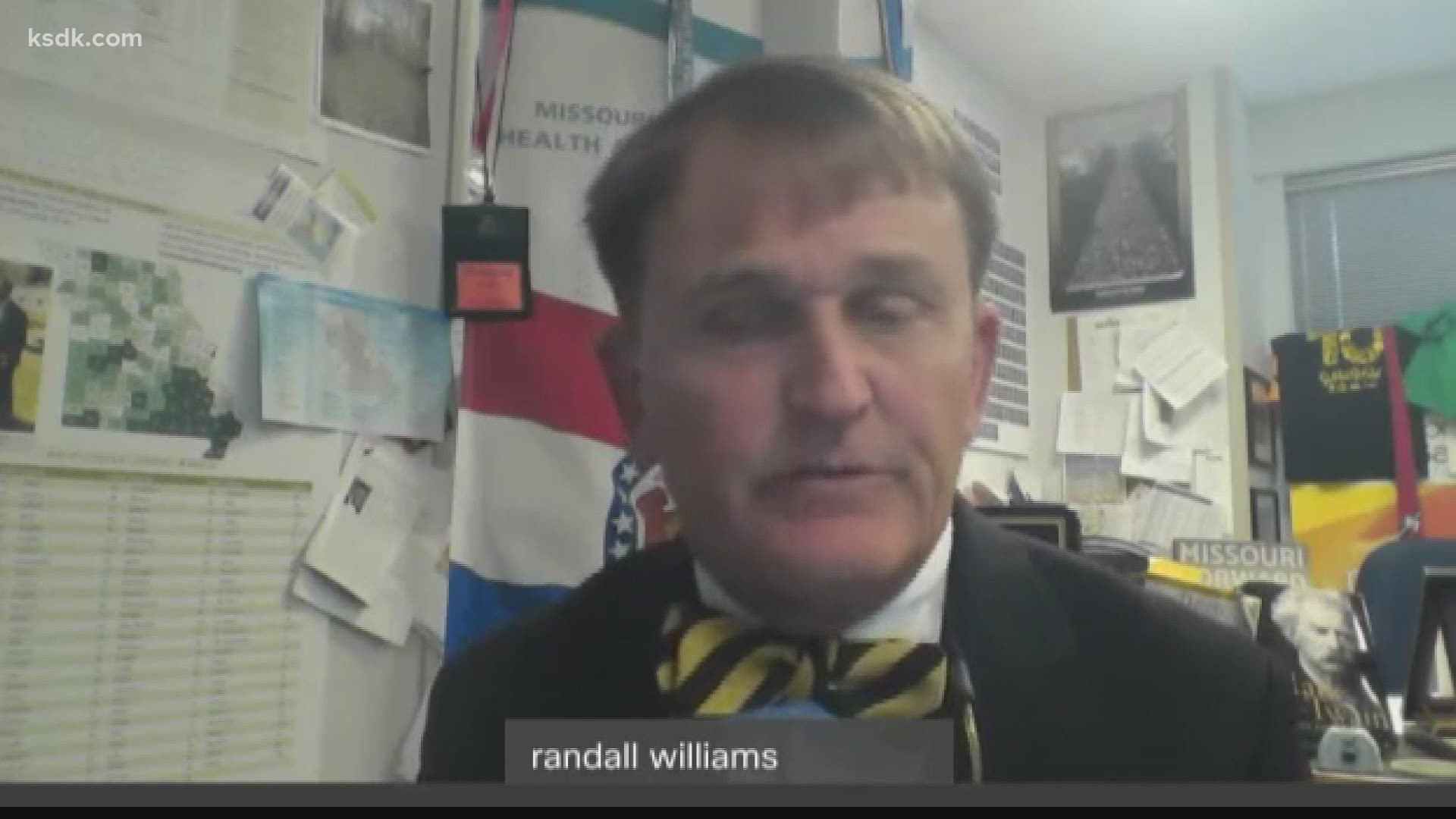ST. LOUIS — Pfizer's coronavirus vaccine was endorsed by a U.S. government advisory panel on Thursday.
This means that shots could begin within days, depending on how fast the Food and Drug Administration signs off on the committee's recommendation. The emergency approval by the FDA could come as soon as Friday.
Missouri Health and Senior Services Director Randall Williams said the first Missourians could get their initial doses beginning next Wednesday, Dec. 16.
Williams said he’d be “ecstatic” if the FDA approval comes as early as Friday evening.
The first doses would include frontline workers at BJC HealthCare. They’re first up to receive the Pfizer vaccine.
Missouri has locked in a shipment of 51,000 initial doses, which will be shipped straight to providers. Following that, the hope is to get Moderna out to rural hospitals and long-term care facilities.
The approval would give the green light to a plan to get about 350,000 Missourians their first shot within the month, pending an approval of Moderna’s vaccine, which is expect in the coming week.
Dr. Williams also said on Friday that Missouri has been promised 2 million initial doses by the end of February, which covers health care workers, long-term care communities and even some of the second group to vaccinated, which would be essential workers and high-risk individuals.
That group, 1B, includes 3 million Missourians. Dr. Williams says they will not separate people into different prioritization categories--or check to make sure they fall into one at all.
"You'll just go and identify yourself as a doctor, dentist, a child care teacher, and they'll give you the vaccine, but there won't be this list that you'll check off on. So it's an honor system."
Anticipating two additional vaccine candidates to be in distribution by the springtime--Astra Zeneca's and Johnson and Johnson's--Dr. Williams hopes anyone in Missouri who wants to get a vaccine will be able to get one beginning May 1.
Social distancing, mask wearing, diligent hygiene, and other preventative measures won't disappear right away, though.
"I don't foresee that changing until July or August," he said. "We think the vaccine will markedly decrease your chances in getting infected, but no vaccine is a hundred percent."
WHAT DOES THE VACCINE DO?
The information below is according to Missouri's COVID-19 vaccine website
Both the Pfizer and Moderna vaccine candidates use messenger RNA (mRNA) to encourage your cells to initiate an immune response to COVID-19. You rely on proteins every day to keep your body healthy. Our bodies use mRNA to tell our cells which proteins to make, which are antibodies in this case. Vaccines that use mRNA are typically quicker and easier to produce, which has helped accelerate the COVID-19 vaccine process.
The ingredients used in the mRNA vaccines developed by Pfizer and Moderna are simple. They contain mRNA, as well as lipids to ensure safe delivery of the mRNA that will initiate an immune response. Although FDA approved adjuvants (aluminum salts) and preservatives (ethlymercury) have a history of safe use in vaccines, they were not used by Pfizer and Moderna in this vaccine technology.
The state's website also has more information with frequently asked questions about the vaccine, click here for more information.

